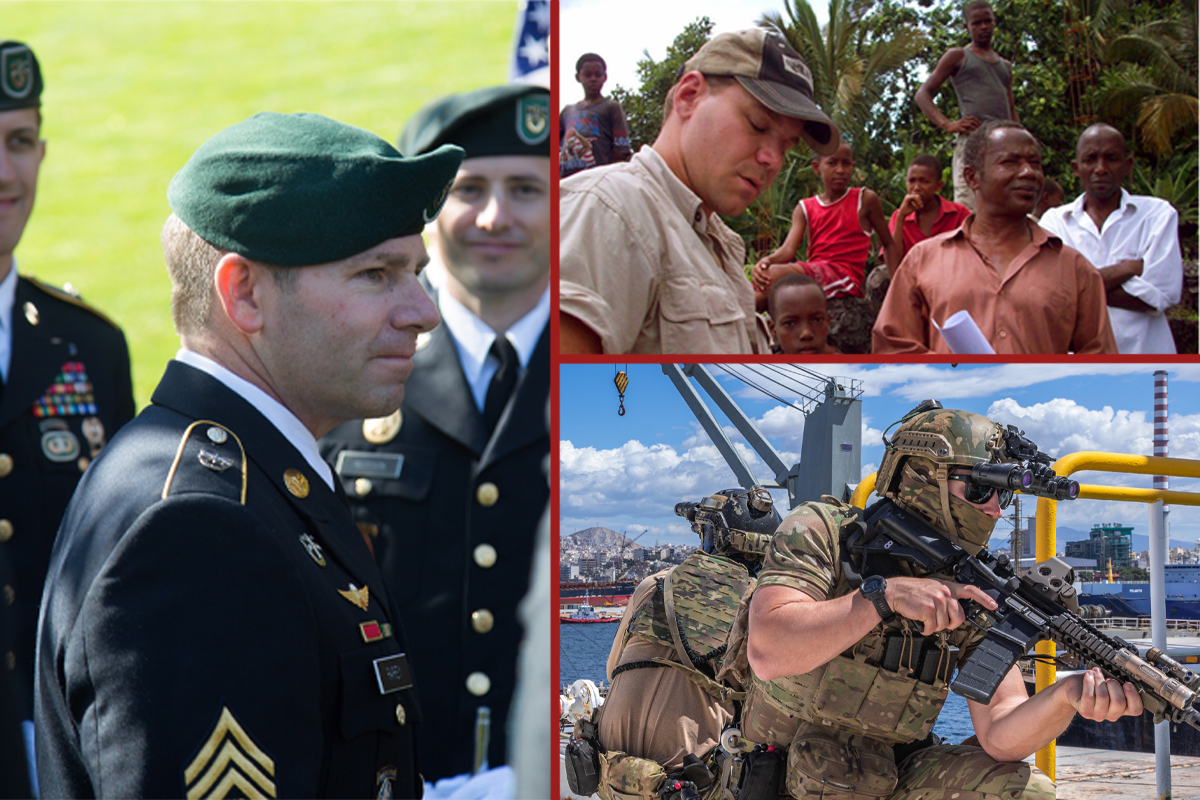

Special operations forces (SOF) and Special Forces have been confused for years. Despite news agencies having more access to information about the military than ever before, they often screw up the difference between ‘special operations,’ ‘SOF,’ ‘operators,’ and ‘Special Forces.’
For decades, images of operators entering compounds in the middle of the night to silently take out a terrorist leader or engage in intense battles in the mountains of Afghanistan have appeared on America’s televisions, social media feeds, and newspapers, and we understand that it can be confusing to tell these highly trained service members apart. Each term means something different though. A few are all-encompassing while others are not — like Special Forces. So who’s who?
Special operations forces
Special operations forces (SOF), or more simply referred to as special operations, refers to all units assigned under the U.S. Special Operations Command (SOCOM), which includes U.S. Naval Special Warfare, Air Force Special Operations Command, Army Special Operations Command, and Marine Special Operations Command.
That means everyone from Air Force Combat Controllers to Navy SEALs to Army Rangers are referred to as special operations. Of course, there are other secretive units under the SOCOM umbrella, and they are considered SOF, too.
Subscribe to Task & Purpose Today. Get the latest military news and culture in your inbox daily.
Recon Marines are highly trained and are often called on to perform the toughest missions, but because they are not in SOCOM, they are not considered SOF. Instead, they fall under the Fleet Marine Force.
Though its name may not sound like special operations, the Army’s Civil Affairs units play an important role in the SOF community. As “persuasive and diplomatic negotiators,” the Army describes the Civil Affairs mission as reducing instability within crisis zones by better connecting U.S. interests with the host country’s needs and its military.
Special Forces
Whereas special operations forces is the generic term for all, well, SOF, Special Forces is a proper noun that refers to a very specific unit in SOCOM. Comprised of the 1st, 3rd, 5th, 7th, 10th, 19th, and 20th Special Forces Groups, you can identify Special Forces soldiers by their distinctive green beret. No one else in the U.S. military is called Special Forces.
Special Forces soldiers are considered the premiere experts in unconventional warfare and foreign internal defense, with a history dating back to Nazi-occupied Norway in the early 1940s. The green beret was authorized for the Special Forces uniform in 1961. They’ve participated in every American conflict since then, from the central highlands of Vietnam to riding into Afghanistan on horseback after the 9/11 terrorist attacks.
To join the Special Forces ranks, Army soldiers must pass the Special Forces Assessment and Selection (SFAS) course and the Special Forces Qualification Course (SFQC), both hosted by the US Army John F. Kennedy Special Warfare Center and School. SFAS and SFQC make up the 1.5-year-long pipeline that a soldier must endure to earn the right to don the green beret and hold an 18-series military occupational specialty.
So, it’s all pretty clear, right? Special operations forces (SOF) is a generic term for all units under the SOCOM umbrella, while Special Forces is a specific SOF unit in the U.S. Army.
The latest on Task & Purpose
- 101st and 82nd Airborne Division soldiers deploying to Eastern Europe
- Have you seen me? All the best ‘Missing F-35’ memes
- Marine Corps searching for F-35 after pilot ejects in South Carolina
- Senate bypasses Tuberville on Joint Chief nominations for Brown, George
- Search for missing Marine F-35B finds debris field
